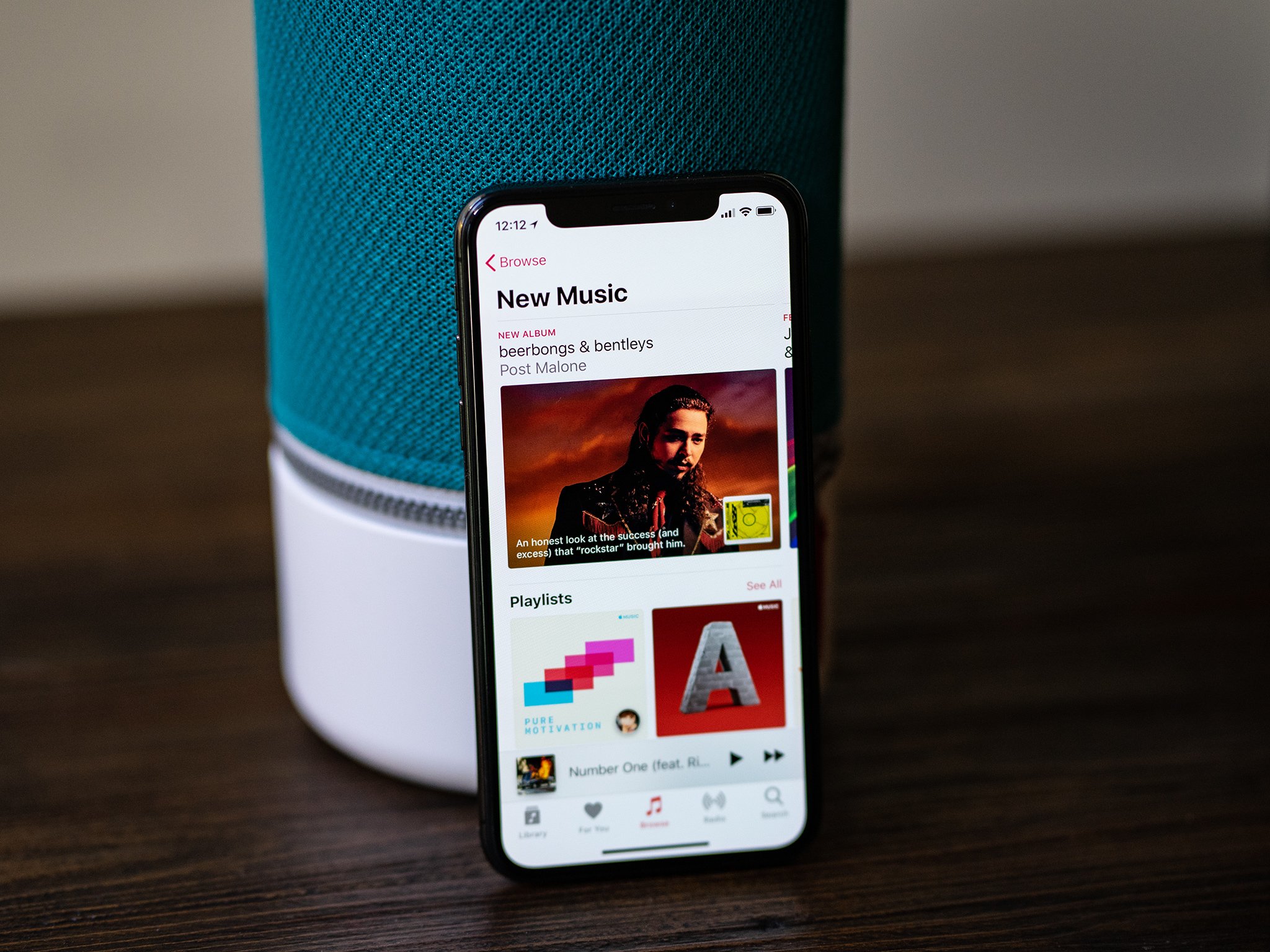AirPlay vs. Bluetooth: Which receivers and speakers should you buy?

When it comes to wirelessly streaming audio from a phone, tablet, PC, or Mac, people generally rely on one of two technologies: Bluetooth or AirPlay. If you're trying to make a decision between Bluetooth or AirPlay speakers, there are some things you should be aware of, as both methods have their own pros and cons.
Here's what you need to know about deciding between Bluetooth and AirPlay when buying audio hardware.
Why you might want to use Bluetooth
The biggest point in favor of Bluetooth is compatibility. Every modern consumer device from feature phones to high-end laptops comes with Bluetooth support built in. It's a standard controlled by a board rather than a single company. And because it's universal, as long as your phone/tablet/computer and your speaker have Bluetooth, you don't require any additional hardware, allowing you to broadcast directly from your device to the speaker. While peer-to-peer AirPlay, which works similarly, does exist, it's not common and a wireless network is often required in order to use AirPlay.
The other major factor to consider between Bluetooth and AirPlay is format support. Having been around longer, Bluetooth has gained support for a wider variety of audio formats than AirPlay. This includes the newer AptX codec, which allows for nearly lossless transmission of audio data between your device and your Bluetooth speaker, many of which support AptX these days.
Why you might want to use AirPlay
If you live in an Apple-centric home, filled mostly with iPhones, iPads, and Macs, then you might want to heavily consider AirPlay. First, AirPlay offers excellent sound quality, and while Bluetooth has been catching up in that arena (thanks in particular to AptX), there are other compelling reasons to choose AirPlay.
First, there's pairing, or rather, the lack thereof. It's true that you'll usually have to set up an AirPlay speaker with your home wireless network, but once you do, that's it. You don't have to pair it with any devices. Any iPhone, iPad, Mac, or Apple TV connected to your Wi-Fi network will be able to connect with and stream music to your AirPlay speaker without any additional steps.
Another consideration is range. While Bluetooth 5 has notably improved range over older versions of Bluetooth, it's still a new technology, and when it comes to audio, you'll still want to keep the device that is streaming music to the speaker in the same room as the speaker. With AirPlay, on the other hand, you can connect to any compatible speaker no matter where you are as long as it and the iPhone, iPad, or Mac from which you want to stream audio is on the same network.
Master your iPhone in minutes
iMore offers spot-on advice and guidance from our team of experts, with decades of Apple device experience to lean on. Learn more with iMore!
And while it's not here yet, I'd be remiss if I didn't mention multi-room audio. AirPlay 2, said by Apple to be coming sometime in 2018, will bring with it support for sending audio to multiple speakers from any iOS device. You'll also be able to control the volume of your different AirPlay 2 speakers separately from one another.
Do you really have to choose?
Here's the secret about the AirPlay vs. Bluetooth debate: these days, you often don't have to choose. In the early days of AirPlay, compatible speakers were often more expensive than their Bluetooth counterparts, but these days, companies like August are making AirPlay speakers for under $100. What's better, many companies have offerings that include support for not only Bluetooth or AirPlay, but both.
Speakers from companies like Libratone, GGMM, and Bang & Olufsen often feature support for both technologies, and the number of companies that support both is continually growing. Here are just a few examples of speakers that support both AirPlay and Bluetooth.
- August WS300G ($80) - See at Amazon
- Libratone Zipp ($299) - See at Amazon
- B&O Play M3 ($299) - See at Amazon
So when looking at speakers and audio receivers, consider something that allows you to pick between Bluetooth and AirPlay based on your needs.
If you really need to choose
If you actually do need to choose between Bluetooth and AirPlay, your final decision is going to depend on your needs.
Do you need something that can work with literally any modern computing device you might have? Maybe you need something portable for a day at the beach or a picnic? Then you'll want to go with Bluetooth.
If you've got an Apple-centric home, and keep most of your speaker-based music listening there, then you'll want to get an AirPlay-compatible speaker. The cost of getting into AirPlay isn't as high as it used to be, you can count on the quality, and you know that it'll work with any Apple device that you have without any pairing.
What did you get?
Have you experimented with both AirPlay and Bluetooth? Which suited you better? Let us know in the comments.
Joseph Keller is the former Editor in Chief of iMore. An Apple user for almost 20 years, he spends his time learning the ins and outs of iOS and macOS, always finding ways of getting the most out of his iPhone, iPad, Apple Watch, and Mac.

